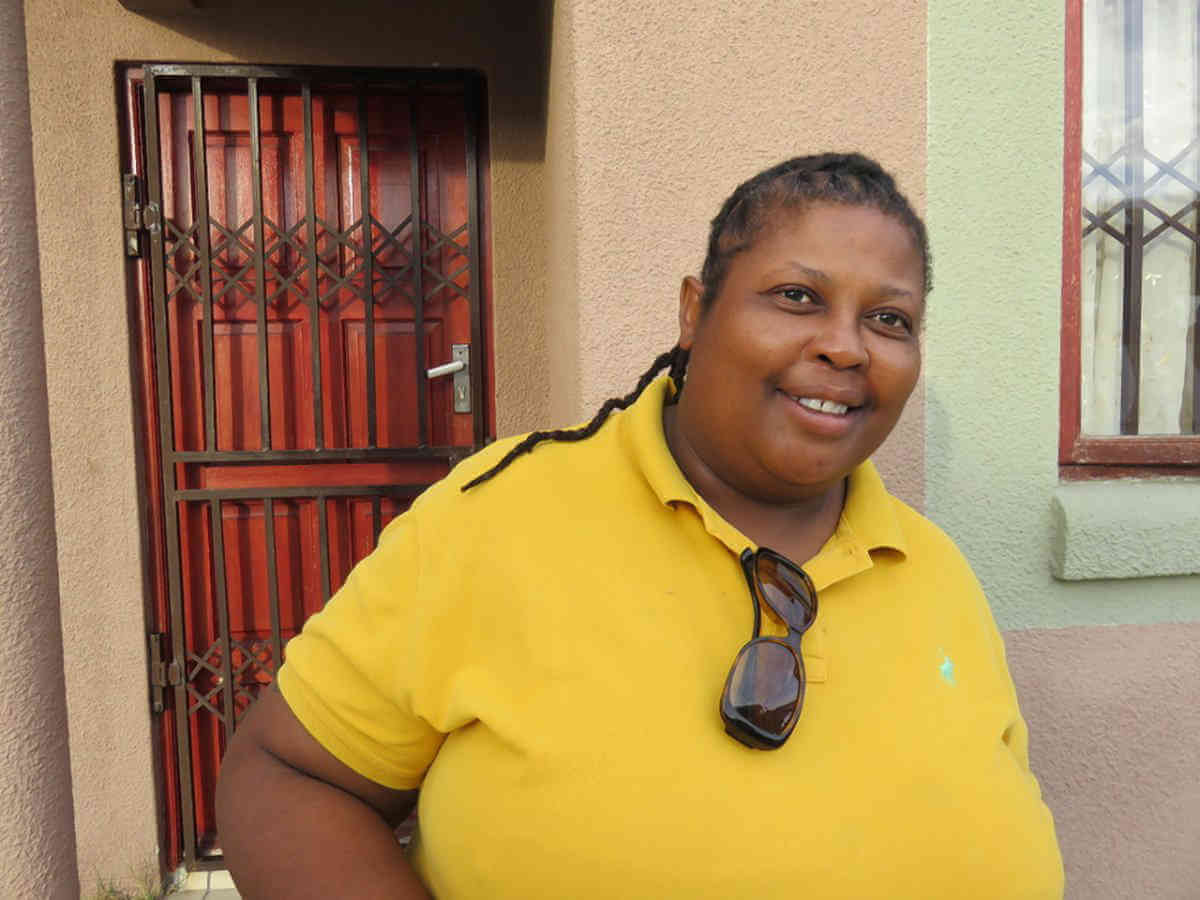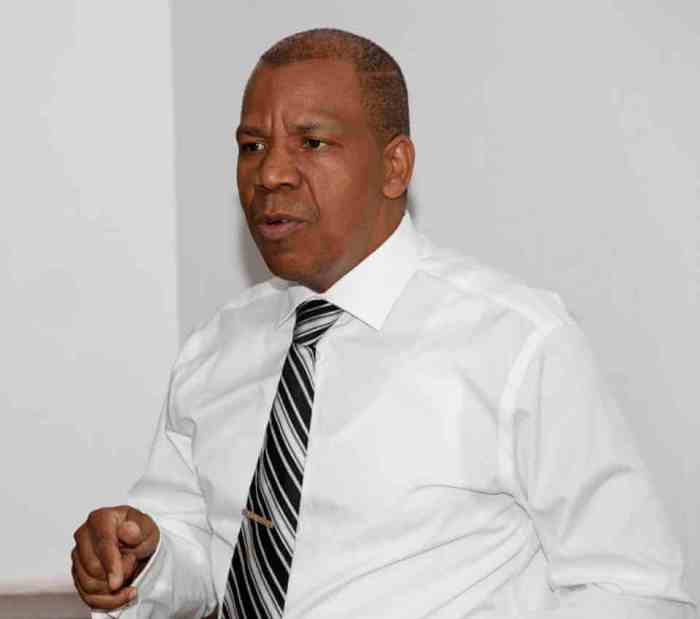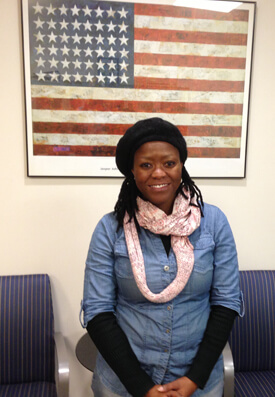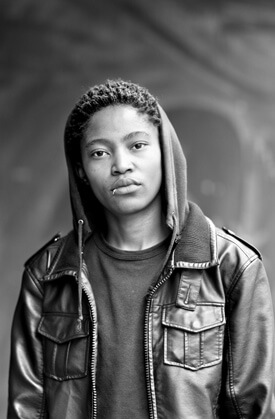In 2006, South Africa became the fifth country in the world to legalize same-sex marriage. So the country must be naturally progressive about LGBTQ equality, right?
The reality is that homophobia, brutal hate crimes, “corrective rape,” and other anti-LGBTQ violence persist, with profoundly heartbreaking effects. And it makes the fight for basic safety in the queer community risky and incredibly difficult.
But over the past decade, one organization has risen to the challenge. Luleki Sizwe Womyn’s Project (luleki-sizwe.com) is a non-profit devoted to delivering help and support to lesbians who are victims of homophobic attacks and rape across 10 South African township communities.
Based in the Cape Town area of Symphony Village, Luleki Sizwe was founded in 2008 by chief executive director Nondumiso “Ndumie” Funda. A native of Gugulethu Township near Cape Town, Funda learned about injustice early on.
“I was raised in a strict Seventh-day Adventist family, in a society where a woman was expected to know her place,” said Funda, 40. “Every aspect of life was handled by men. Women couldn’t be outspoken. We were not equal. But I knew from a young age that I was a feminist and lesbian — two things that I could never change.”
Yet Funda managed to overcome obstacles of injustice and oppression, and she emerged from her township as a powerful force for good.
To meet her is to feel her power. She conveys focus over sentimentality, and recounts cold facts and tragic stories so plainly that it’s clear just how commonplace they are in her community. As with the greatest leaders, Funda seems to derive strength from hardships.
“The pain and struggle of those less fortunate than me inspire me to help,” she said. “That has circulated in my blood vessels since I was a child growing up in dusty Gugulethu and participating in the anti-apartheid movement.”
But personal tragedy also inspired Funda to found Luleki Sizwe, and the organization’s name carries the message.

“The first part of our name comes from Luleka Makiwane, who was a lesbian activist,” Funda said about her friend. “She lived openly and had no shame about her sexuality. She was a strong and powerful woman, and even though she fought for LGBTI rights she connected strongly to the struggle of the poor in general. This did not protect her, though.”
Funda explained that Makiwane was raped by her own cousin “to prove that she was a woman not a man.” She acquired HIV and AIDS from the assault, and openly spoke about her experience to help bring awareness about sexuality and sexual abuse until she died in 2005.
The second part of the organization’s name comes from Nosizwe Nomsa Bizana, a lesbian who was engaged to marry Funda. Because of her sexuality, Bizana was raped at gunpoint by five men, which infected her too with HIV.
“Unfortunately, the trauma of the rape silenced her in the beginning,” said Funda. “But before she passed away, she disclosed her HIV status to the broader community and shared her story for educational campaigns about the disease… As a result of the vicious rape, she succumbed to cryptococcal meningitis due to AIDS, and died in 2007.”
Funda explained that Luleki Sizwe’s name, then, is much more than a tribute: “In African culture names are not just names, they have meaning. A name connects the child to the family and community. Because of this connectedness, the child‘s duty is to live in harmony with her name.”
Luleki Sizwe’s namesake heroes are but two of the black lesbians who have suffered and continue to do so because of their sexuality. The case of Eudy Simelane is more famous. Simelane was a member of the South Africa women’s national football (soccer) team and an out lesbian and LGBTQ-rights activist. In her home township of KwaThema (in Gauteng, near Johannesburg), Simelane was gang raped, beaten, and stabbed 25 times in what the South African Human Rights Commission deemed a hate crime murder due to her sexual orientation.
A political philosopher once said, “All that is necessary for the triumph of evil is that good people do nothing.” Funda embodies an antidote to evil by boldly facing adversity. Through her daily efforts, she carries out Luleki Sizwe’s multi-faceted mission with a small team who together work to educate, promote change, and provide safe spaces and support networks for black lesbians in urban and rural townships.
Sharing a safe house and medical care is at the core of Luleki Sizwe’s operation. Evictions from their homes commonly lead young lesbians to drop out of school and suffer alcohol abuse as well as endure dire situations of sex work to afford basic survival.
The group also works to pursue legal justice for victims, because, as Funda explained, “In South Africa, if you’re not following your case [through the police and courts], the justice system becomes silent.”

For women who have been banished from their communities because of their sexuality or HIV/ AIDS status, Funda’s team offers a home and friends. Important social elements include all-ages arts programs and soccer and rugby teams, which build relationships and help with mentoring, self-esteem, and a welcome dose of fun.
“We have good people with good hearts to help us,” Funda said.
In its broader mission, the organization works to shift many Africans’ deep, negative cultural perceptions about queer women and to raise awareness about the epidemic of “corrective rape” and other hate crimes. These efforts span political advocacy and church lobbying. And at the safe house, the team works to cultivate strong and confident leaders who can mentor other young lesbians.
The organization has earned awards and accolades from local and international institutions. But to survive, it still depends on donations. From money and clothing, to food or household goods, to personal or medical care items, “There is nothing that is not useful,” Funda said.
She noted that the most urgent need is $400 monthly rent for the shelter through August 2019 — after which Luleki Sizwe will either need to buy the house for $35,000 or find a new shelter. Another urgent need is a mobile phone contract that includes data for website management and email.
Funda of course welcomes donations — but the group has long encountered problems collecting international non-profit funds through its PayPal account. So, at present, the alternate donation method is via direct bank transfer, which this writer successfully did online in just a few minutes.
The organization’s business transaction account details are: Luleki Sizwe Womyn’s Project; Standard Bank South Africa, Cape Town; account number 071362940; branch code 024909; SWIFT code SBZAZAJJ. The Luleki Sizwe Womyn’s Project can be contacted at 071-171-9654 and info@
Kelsy Chauvin is a writer and photographer based in Brooklyn, specializing in travel, culture, and LGBTQ interests. Follow her on Twitter and Instagram @kelsycc.


































